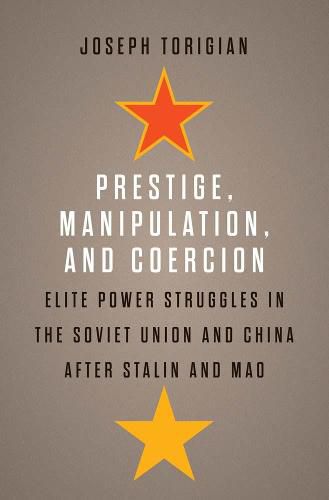Prestige, Manipulation, and Coercion: Elite Power Struggles in the Soviet Union and China after Stalin and Mao
Joseph Torigian

Prestige, Manipulation, and Coercion: Elite Power Struggles in the Soviet Union and China after Stalin and Mao
Joseph Torigian
How succession in authoritarian regimes was less a competition of visions for the future and more a settling of scores
Joseph Torigian’s stellar research and personal interviews have produced a brilliant, meticulous study. It fundamentally undermines what political scientists have presumed to be the way Chinese Communist and Soviet politics operate. -Dorothy J. Solinger, University of California, Irvine
The political successions in the Soviet Union and China after Stalin and Mao, respectively, are often explained as triumphs of inner-party democracy, leading to a victory of reformers over conservatives or radicals. In traditional thinking, Leninist institutions provide competitors a mechanism for debating policy and making promises, stipulate rules for leadership selection, and prevent the military and secret police from playing a coercive role. Here, Joseph Torigian argues that the post-cult of personality power struggles in history’s two greatest Leninist regimes were instead shaped by the politics of personal prestige, historical antagonisms, backhanded political maneuvering, and violence. Mining newly discovered material from Russia and China, Torigian challenges the established historiography and suggests a new way of thinking about the nature of power in authoritarian regimes.
This item is not currently in-stock. It can be ordered online and is expected to ship in 10-14 days
Our stock data is updated periodically, and availability may change throughout the day for in-demand items. Please call the relevant shop for the most current stock information. Prices are subject to change without notice.
Sign in or become a Readings Member to add this title to a wishlist.


